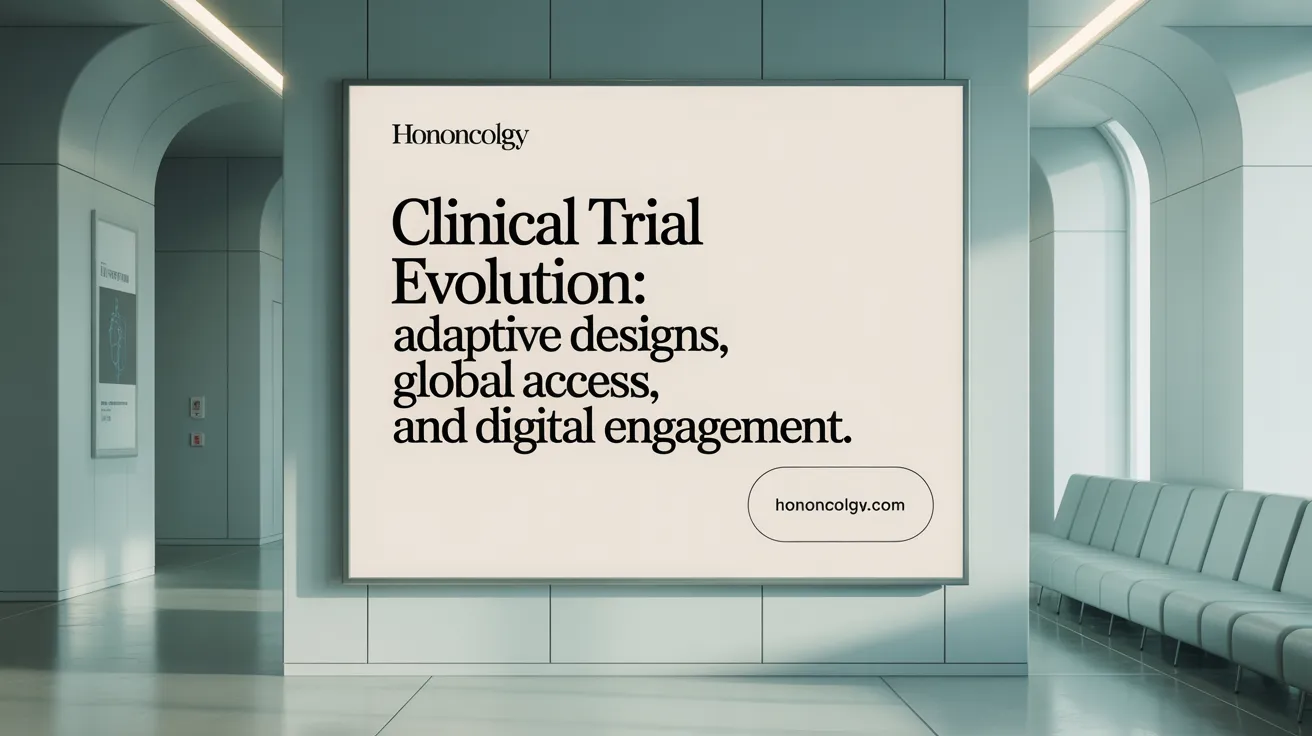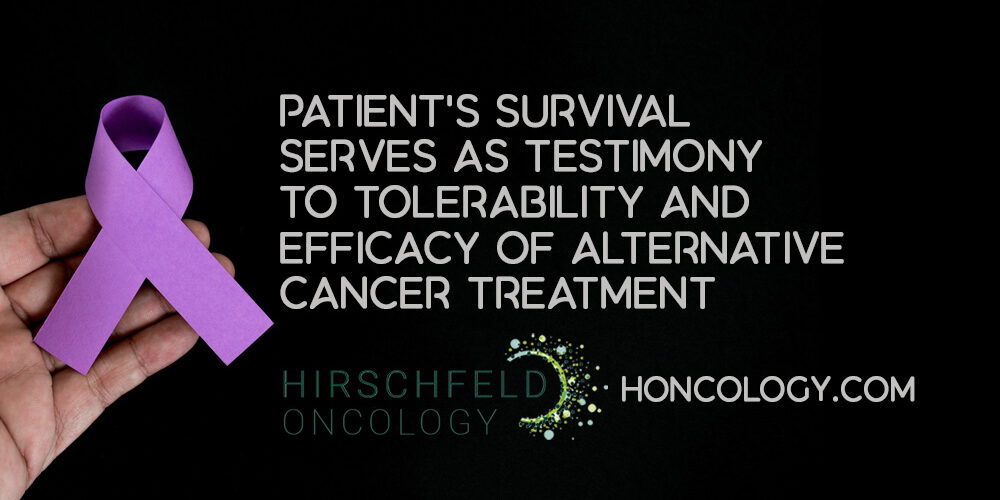A New Era in Oncology Research and Clinical Trials
Rapid Advancements in Oncology Research and Clinical Trials
Oncology research has seen remarkable growth, with trial starts increasing by 12% since 2019, totaling over 2,100 in 2024. This surge prioritizes rare cancers and solid tumors, reflecting a dynamic clinical trial landscape that is increasingly patient-focused.
The Rise of Innovative Therapies and Technologies
Novel treatment modalities are reshaping cancer care. Cell and gene therapies, antibody-drug conjugates (ADCs), and multispecific antibodies now account for 35% of oncology trials. Advanced technologies like AI, next-generation sequencing (NGS), and liquid biopsies enhance detection, patient stratification, and personalized interventions.
Emphasis on Personalized and Patient-Centered Care
Precision oncology drives tailored treatments based on genetic and molecular tumor profiling. Personalized vaccines and immunotherapies demonstrate promising outcomes. Trials increasingly incorporate patient-reported outcomes, digital tools, and biomarker-driven designs, underscoring a shift toward individualized, comprehensive care that prioritizes safety and efficacy.
Key Facts on Emerging Oncology Innovations 2024
- Global oncology R&D surged in 2024 with 2,162 trial starts, a 12% increase since 2019, mainly focusing on rare cancers and solid tumors.
- Approximately 35% of all oncology trials in 2024 involved novel therapies, including cell and gene therapies, ADCs, and multispecific antibodies.
- The rise of innovative therapies has increased global oncology active substances launched annually to an average of 26, with China nearing US output.
- PD-1/PD-L1 checkpoint inhibitors are increasingly used across earlier treatment lines and tumor types, enhancing patient outcomes.
- FDA approvals have expanded for bispecific antibodies (e.g., Lynozyfic) and cellular therapies like CAR T-cell, indicating progress in immunotherapy.
- Genomic initiatives like UK’s 100,000 Genomes Project enable tumor profiling, shifting focus from tissue origin to molecular classification.
- Technologies such as next-generation sequencing (NGS) and AI tools help detect HRD, mutation-driven targets, and guide precision treatments.
- Liquid biopsies with circulating tumor DNA (ctDNA) allow non-invasive early detection, relapse prediction, and real-time monitoring, transforming diagnostics.
- Groundbreaking therapies include menin inhibitors, PARP inhibitors, KRAS-targeted agents, and ADC-based treatments, expanding options for resistant and rare cancers.
- AI models predict lung cancer risk up to 6 years early, and AI platforms like MatchMiner improve trial recruitment efficiency by up to 95%.
1. Rise of Novel Oncology Modalities Driving Clinical Trial Innovation

Increase in Oncology Clinical Trial Starts Mainly Focusing on Rare Cancers and Solid Tumors
Oncology research and development surged in 2024 with 2,162 trial starts globally, marking a 12% increase since 2019. The primary focus of these clinical trials has been rare cancers and various solid tumor types, underlining a strategic shift towards addressing unmet needs in less common and challenging cancer subtypes.
Novel Modalities Including Cell and Gene Therapies, Antibody-Drug Conjugates, and Multispecific Antibodies
Innovative therapeutic modalities have revolutionized oncology trials. These include cell and gene therapies, antibody-drug conjugates (ADCs), and multispecific antibodies. Such novel approaches enhance targeted cancer treatment by improving specificity and efficacy while aiming to reduce toxicity compared to traditional chemotherapy.
Trends Showing 35% of Oncology Trials Involve These Novel Therapies
As of 2024, approximately 35% of all oncology clinical trials feature these novel therapy types. This substantial share reflects the industry's commitment to next-generation treatment options. ADCs and multispecific antibodies, in particular, are instrumental in delivering cytotoxic agents directly to cancer cells or engaging multiple targets simultaneously.
Impact on Global Oncology R&D and Drug Launches
The rise of these therapies has significantly increased global oncology R&D activity. Over the past five years, an average of 26 novel active substances (NAS) were launched annually, up from 16 in the preceding period. China notably accelerated its drug launches, nearing the output of the United States. The proliferation of these advanced therapies has driven substantial progress in treatment possibilities and clinical outcomes worldwide.
2. Immunotherapy Expands Frontiers in Cancer Treatment

Rapid adoption of PD-1/PD-L1 checkpoint inhibitors across earlier treatment lines and tumor types
In 2024, PD-1/PD-L1 checkpoint inhibitors usage trends have seen accelerated use particularly in high-income countries. Their application has expanded beyond metastatic settings to include pre-metastatic cancers and earlier lines of therapy across multiple tumor types. This early adoption is driving improved patient outcomes and broader clinical benefits.
Increased FDA approvals for new immunotherapy drugs including bispecific antibodies and cellular therapies
The FDA has approved a growing list of immunotherapeutic agents, including novel bispecific antibodies like Lynozyfic and antibody-drug conjugates such as Enhertu and Adcetris. CAR T-cell and TCR therapies progress continue to advance with several new approvals reflecting their expanding role in oncology treatment.
Clinical trials showing improved survival outcomes with immunotherapy combinations
Recent phase III trials have demonstrated that combining immune checkpoint inhibitors with chemotherapy or targeted therapies can significantly improve progression-free survival. For example, MSK and global studies report enhanced event-free survival with neoadjuvant and adjuvant pembrolizumab in head and neck cancers and nivolumab in operable lung cancer. Such findings are changing standard-of-care protocols. See more from MSK advances in medical oncology at ESMO 2025 and Top Trial Results of 2024.
Emerging CAR T-cell and TCR therapies with long-term remission potential
CAR T-cell therapies have shown durable remissions in hematologic malignancies, with follow-ups extending beyond a decade for some patients. Experimental TCR therapies also demonstrate promising antitumor activity. New CAR NK cell designs and bispecific T-cell engagers are underway in clinical trials, aiming to overcome resistance and improve persistence, expanding immunotherapy's impact on solid tumors. Learn more about these trends in Cancer immunotherapy clinical trials and T-Cell–Directed Immunotherapy for B-cell Lymphoma.
3. Precision Medicine and Genomic Profiling: Tailoring Cancer Therapies

Genomic sequencing projects enabling tumor molecular profiling
Large-scale genomic initiatives like the UK’s 100,000 Genomes Project have transformed cancer care by providing detailed molecular profiles of tumors. These efforts enable clinicians to classify cancers based on their genetic makeup rather than just tissue origin, supporting a tailored approach to therapy.
Use of next-generation sequencing and AI to identify homologous recombination deficiency and mutation-driven targets
Next-generation sequencing (NGS) technologies, combined with advanced artificial intelligence tools such as DeepHRD, enhance the detection of homologous recombination deficiency (HRD) in tumors. This allows for identifying patients likely to benefit from targeted agents like PARP inhibitors. AI also aids in uncovering mutation-driven vulnerabilities, supporting precise targeting of cancers with specific genetic alterations. For more on these advances see Top Oncology Innovations 2025 and cancer vaccine ELI-002 in KRAS-mutated cancers.
Biomarker-driven treatment approaches guiding clinical decision making
Biomarker testing is increasingly standard in oncology. For example, PD-1/PD-L1 expression informs immunotherapy use across multiple tumor types. In hormone receptor–positive breast cancer, ESR1 mutation assessments influence the choice of endocrine therapies like imlunestrant. Biomarker data shape clinical strategies, helping clinicians select treatments with the highest probability of efficacy. These advances are reviewed in detail in Biomarker-Driven Treatment Approaches and updates from What's New in Oncology.
Examples of precision medicine impacting breast, lung, and pancreatic cancer treatments
Precision oncology has markedly improved outcomes in several cancers. In breast cancer, targeted therapies such as palbociclib and novel agents for HER2 mutations improve progression-free survival. Lung cancer treatment now includes drugs targeting mutations like KRAS G12C and HER2, aided by genomic profiling. Pancreatic cancer trials of KRAS-directed vaccines and therapies informed by tumor sequencing show promise in reducing relapse risk, marking strides in personalized treatment. For comprehensive insights, see new cancer treatment breakthroughs and What's New in Oncology.
Precision medicine continues to revolutionize cancer care by integrating genomic insights and advanced computational tools for increasingly individualized therapy plans.
4. Groundbreaking Cancer Vaccines Advance Immunoprevention

Personalized mRNA-Based Cancer Vaccines Targeting Tumor-Specific Mutations
Recent advances in immunoprevention feature personalized cancer vaccines that use mRNA technology to stimulate the immune system against tumors. These vaccines are tailored to the unique mutations within a patient's cancer, enhancing specificity and minimizing side effects. This approach mirrors the success of mRNA vaccines in infectious diseases and represents a significant leap toward individualized cancer treatment. Learn more about cancer vaccines research.
Early Phase Clinical Trial Successes
Clinical trials have begun demonstrating the efficacy of these vaccines in priming the immune response and reducing cancer relapse rates. Phase I studies show strong safety profiles alongside effective activation of T cells, critical for recognizing and attacking cancer cells. Details on phase 1 cancer trial response rates and cancer clinical trials overview provide further insights.
KRAS-Targeted ELI-002 Vaccine and Its Impact
A notable example is the ELI-002 cancer vaccine targeting KRAS mutations, which are common drivers in pancreatic and colorectal cancers. The Phase I AMPLIFY-201 trial reported impressive outcomes, including an 86% reduction in the risk of relapse or death among high-risk patients. This vaccine generated robust T cell responses signaling effective immunological engagement against mutated KRAS proteins. For more information, see KRAS-targeting vaccine trial for pancreatic and colorectal cancer.
Transforming Cancer Recurrence Prevention
These emerging vaccines hold promise to revolutionize cancer care by shifting the treatment paradigm from managing active disease to preventing recurrence. By training the immune system to identify and eliminate residual cancer cells after primary therapy, such vaccines can improve long-term survival and quality of life for many patients. This progress signals a future where immunoprevention is an integral part of comprehensive cancer management. Discover insights on Immunotherapy Advances in 2025 and Personalized Treatment with AI.
5. Innovations in Radiotherapy Enhance Tumor Targeting and Reduce Toxicity

Proton Beam Radiotherapy Offers Comparable Efficacy with Reduced Side Effects
Proton therapy (IMPT) has emerged as a significant advance in the treatment of head and neck cancers. Research from MSK advances in medical oncology at ESMO 2025 and other institutions demonstrates that proton beam radiotherapy achieves similar oncologic outcomes as traditional photon-based IMRT but with notably fewer side effects. Patients treated with proton therapy experience lower rates of malnutrition, weight loss, and a reduced need for feeding tubes, which significantly improves treatment tolerability and quality of life.
Cutting-Edge Radiation Delivery Systems Enhance Precision
Technological innovations such as the CyberKnife® robotic radiosurgery system and Varian’s Halcyon platform are revolutionizing radiotherapy by enabling highly conformal and precise dose delivery. These systems allow clinicians to target tumors more accurately while sparing adjacent healthy tissues. As a result, radiation-induced toxicities are minimized, and treatment sessions can be more efficient and comfortable for patients.
Optimizing Fractionation Schedules for Better Outcomes
Current studies investigate the balance between hypofractionated (fewer, larger doses) and conventional fractionation regimens. Hypofractionation can reduce overall treatment times and potentially improve patient convenience, while maintaining tumor control and limiting normal tissue damage. The choice of regimen is tailored to tumor type and location, leveraging advanced delivery technologies to maximize therapeutic gain.
Enhancing Patient Experience and Therapy Tolerability
These advances in radiotherapy not only maintain efficacy but also contribute meaningfully to patient quality of life. Reduced acute and chronic toxicities lead to better nutritional status, fewer treatment interruptions, and improved post-therapy recovery. Collectively, the integration of proton therapy and advanced radiation platforms represents a leap forward in personalized, less toxic oncology care.
6. Liquid Biopsies and Molecular Diagnostics Revolutionize Early Detection and Monitoring

Development of blood tests detecting multiple early-stage cancers with high accuracy
Recent breakthroughs in blood-based diagnostic technologies have enabled the detection of up to 18 types of early-stage cancers from a single test with remarkable accuracy. These novel tests represent a major advancement in non-invasive cancer screening, allowing earlier diagnosis when treatment is more effective. For more on these advances, see Personalized cancer vaccines trialed in the UK.
Use of circulating tumor DNA (ctDNA) as biomarkers for relapse prediction and treatment response
Circulating tumor DNA, fragments of cancer-derived DNA found in blood, is emerging as a powerful biomarker for monitoring cancer progression and recurrence risk. Research demonstrates ctDNA's ability to predict relapse by detecting minimal residual disease before clinical signs appear. However, routine clinical use of ctDNA for relapse prediction remains under evaluation pending further evidence. Learn more about Circulating tumor DNA detection and relapse prediction in breast cancer and Liquid biopsies in cancer detection.
Application of liquid biopsies in cancer interception clinical trials
Clinical trials increasingly incorporate liquid biopsies to detect molecular residual disease (MRD) and guide early intervention strategies. Cancer interception trials utilize ctDNA clearance measured by these non-invasive methods as surrogate endpoints to assess treatment efficacy in preventing relapse. See detailed discussion on Cancer interception trials and molecular residual disease treatment and Cancer clinical trials process and innovations.
Non-invasive diagnostic methods facilitating personalized cancer management
Liquid biopsies provide an accessible alternative to tissue biopsies, enabling dynamic tumor molecular profiling without invasive procedures. Combined with advanced genomic and proteomic analyses, they support precision oncology by informing individualized treatment plans and real-time monitoring of therapeutic response and resistance. This growing integration of liquid biopsy and molecular diagnostics is reshaping cancer management by improving early detection, tailoring therapies, and enhancing patient outcomes through less invasive monitoring. For further insights, refer to Precision Medicine Advances in Oncology and Precision oncology and the UK 100,000 Genomes Project.
7. Novel Targeted Therapies Address Resistant and Rare Cancer Subtypes

What new drug approvals are advancing treatment for acute myeloid leukemia?
The FDA approved revumenib, a menin inhibitor for relapsed or refractory acute myeloid leukemia (AML) with specific genetic alterations (KMT2A rearrangements or NPM1 mutations). This approval is based on promising clinical trial results demonstrating revumenib's ability to target leukemia cells effectively, offering a new option for patients with limited choices.
How are PARP inhibitors improving treatments for breast and ovarian cancers?
Next-generation PARP inhibitors like saruparib have emerged with increased selectivity for PARP1, showing enhanced safety and effectiveness in treating breast cancers with DNA repair defects. These advances offer a promising therapy for ovarian cancer as well, refining earlier PARP therapies by reducing adverse effects while maintaining efficacy.
What are the latest treatments targeting KRAS mutations and RNA splicing vulnerabilities in lung adenocarcinoma?
Research has identified new vulnerabilities in lung adenocarcinoma, such as KRAS mutations and altered RNA splicing due to CMTR2 gene mutations. Precision therapies including KRAS-targeted agents and splicing modulators are in clinical development to exploit these weaknesses. Notably, agents like zongertinib and sevabertinib targeting HER2 mutations in non-small cell lung cancer are also showing favorable activity.
What progress has been made with antibody-drug conjugates for lymphomas and solid tumors?
Antibody-drug conjugates (ADCs) such as Glofitamab plus Polatuzumab Vedotin have demonstrated significant efficacy and manageable safety profiles in treating relapsed or refractory large B-cell lymphoma. These ADCs continue to expand in indications, including breast cancer and other solid tumors, becoming an integral part of modern oncology treatment strategies.
These targeted therapies represent critical advances in managing resistant, rare, and difficult-to-treat cancers, improving patient outcomes with precision medicine.
| Therapy Type | Target Indication | Notable Agents | Clinical Impact |
|---|---|---|---|
| Menin inhibitors | Relapsed AML with KMT2A/NPM1 | Revumenib | FDA approved; effective in refractory AML |
| PARP inhibitors | Breast, ovarian cancers with DNA repair defects | Saruparib | Improved safety and efficacy profiles |
| KRAS and splicing modulators | Lung adenocarcinoma with KRAS/CMTR2 mutations | Experimental targeted therapies | Exploiting genetic vulnerabilities |
| Antibody-drug conjugates | B-cell lymphoma, breast cancer | Glofitamab + Polatuzumab Vedotin | Enhanced efficacy with tolerable toxicity |
8. Artificial Intelligence Accelerates Oncology Diagnosis and Clinical Trial Efficiency

How is AI used to predict lung cancer risk years before onset?
MIT scientists have developed AI models capable of predicting lung cancer risk up to six years in advance by analyzing low-dose CT scans. These models detect subtle imaging features that indicate early disease processes, enabling earlier diagnosis and intervention. For more, see AI and machine learning for early cancer detection.
What machine learning tools enhance clinical trial recruitment and data analysis?
AI-powered platforms like Harvard’s MatchMiner drastically reduce clinician workload by automating patient eligibility assessment for trials. These systems use machine learning to match patients with relevant trials, increasing recruitment efficiency by up to 95%. Additionally, AI supports complex data analysis, helping accelerate oncology research outcomes. More details are available at Global Oncology Trends Report.
How is AI integrated across the cancer care continuum?
Artificial intelligence is employed for early cancer detection, diagnosis, and personalized treatment planning. Tools analyze imaging, genomic, and biomarker data to tailor therapies to individual tumor profiles. AI also aids clinicians in decision-making to optimize treatment effectiveness. Learn more at Top Oncology Innovations 2025.
What platforms improve clinical trial logistics and patient workflow management?
Platforms such as Merative’s Zelta utilize AI and dynamic data flow to streamline complex oncology trial designs. They facilitate real-time data monitoring, cycle-based study management, and reduce trial durations. These technologies enhance patient engagement and support decentralized trial components, improving overall trial efficiency and data accuracy. Read further at Oncology Clinical Trials CROs 2024.
9. Emerging Therapies for Challenging Tumors Like Glioblastoma and Pancreatic Cancer

Breakthroughs in CDK7-targeted Therapies Disrupting Head and Neck Cancer Progression
Recent research highlights CDK7-targeted therapy in head and neck cancer as innovative agents that effectively disrupt cell cycle progression and oncogenic signaling in head and neck cancers. By inhibiting pathways critical to tumor growth, these therapies represent a significant advancement in managing aggressive cancer types with improved specificity.
Novel Peptide Therapies Selectively Triggering Cancer Cell Death with Minimal Toxicity
A novel peptide therapy, Peptide 2012, developed using high-resolution X-ray crystallography, prevents cancer cell anchoring and spreading by disrupting the interaction between focal adhesion kinase (FAK) and paxillin. This therapy selectively induces cancer cell death with minimal toxicity to normal cells, achieving tumor shrinkage of up to 80% in preclinical models, and holds promise for treating resistant cancers including pancreatic cancer (novel peptide-based cancer therapy).
Combination Immunotherapies and PARP Inhibitors Improving Outcomes in Pancreatic and Glioblastoma Patients
The addition of immunotherapy agents such as durvalumab, a PD-L1 inhibitor, combined with chemotherapy and PARP inhibitors (e.g., olaparib), has shown promise in lowering disease progression and enhancing treatment efficacy in pancreatic cancer. Additionally, studies reveal that proinflammatory macrophage secretome sensitizes glioblastoma tumors to temozolomide chemotherapy via downregulation of DNA repair enzymes, offering potential adjuvant strategies (gut microbiome and colorectal cancer).
Clinical Trials Advancing Safety and Efficacy of These Innovative Agents
Multiple clinical trials are underway to evaluate the safety, optimal dosing, and effectiveness of these novel therapies. Phase I/II trials for peptide therapies and CDK7-targeted agents are progressing, with researchers also investigating combinatorial approaches with immunotherapies and PARP inhibitors. These trials aim to validate preclinical findings and improve outcomes for patients with difficult-to-treat tumors such as glioblastoma and pancreatic cancer (Cancer clinical trials).
10. Trends in Oncology Clinical Trial Design and Expanded Patient Access

How are oncology clinical trials evolving in design?
Oncology trials are increasingly shifting from traditional cytotoxic chemotherapy studies to biomarker-driven , adaptive designs. These modern trials focus on molecularly targeted agents and immunotherapies, leveraging biomarker testing to personalize treatments. Examples include tissue-agnostic trials that enroll patients based on genetic tumor features rather than cancer location, improving relevance and outcomes. See more on Future of Clinical Trials Design in Oncology.
Adaptive and multi-arm platform trials are gaining popularity, allowing modifications based on interim results and testing multiple treatment options simultaneously. These designs enhance efficiency and speed up drug development in oncology. More details at Future of clinical trials design in oncology.
What changes are seen in trial geography and technology usage?
There has been a decline in multi-country oncology trials, dropping from 37% in 2015 to 20% in 2024, with a rise in single-country trials, especially in China. This trend affects trial regulation and population representativeness. For insights, see Oncology Clinical Trials 2024 and Global Oncology Trends 2025.
At the same time, decentralized clinical trials (DCTs) are emerging, although they currently represent only around 7% of oncology trials. Integration of technology platforms—such as AI for trial management and digital tools for remote patient engagement—is increasing to optimize data flow, reduce timelines, and improve trial accuracy. See Oncology clinical trials CROs 2024 and Top Oncology Innovations 2025.
How is evidence being validated and treatments monitored post-approval?
Regulatory agencies are embracing the use of real-world evidence (RWE) alongside clinical trial data to support drug approvals and guide clinical decision-making. Post-approval surveillance through confirmatory trials ensures the clinical benefits of new oncology drugs are validated, although timely completion remains challenging. For further reading, refer to Future of Clinical Trials Design in Oncology and Cancer Clinical Trials.
Patient-reported outcomes (PROs), collected via digital apps and wearables, are increasingly utilized to assess treatment impact on quality of life, supporting patient-centered care. See Future of clinical trials design in oncology for more information.
What efforts are underway globally to improve patient access and advocacy?
Global oncology initiatives are focusing on equitable trial access, particularly for rare tumors and underserved populations. Collaborative trials across countries aim to accelerate accrual and diversify study populations. For background, see Global Oncology Trends 2025 and Global Oncology R&D Trends.
Patient advocacy models are evolving, involving patients in trial design and outcome prioritization. This engagement helps reduce barriers to participation and improves treatment relevance. Learn more at Cancer Clinical Trials and Cancer Clinical Trials Overview.
Together, these trends in trial design, technology, evidence use, and access are reshaping oncology clinical research to be more precise, efficient, and patient-focused.
Leadership and Personalized Care at Hirschfeld Oncology
Who leads the team at Hirschfeld Oncology, and what is their role?
Dr. Azriel Hirschfeld serves as the principal leader at Hirschfeld Oncology. Within this role, he directs a multidisciplinary team of physicians, nurses, and healthcare specialists.
Under Dr. Hirschfeld’s guidance, the team emphasizes the creation of individualized treatment plans that blend proven standard therapies with innovative, research-driven approaches. His leadership exemplifies a commitment to integrating the latest scientific advancements with empathetic patient care. Learn about innovations in oncology treatment
Collaborative medical team approach to treatment planning
The clinic operates on a collaborative model, wherein diverse medical professionals work closely to tailor cancer treatments according to each patient’s unique needs. This cooperative structure promotes comprehensive evaluations and informed decision-making, optimizing patient outcomes. Explore oncology clinical trials and team-based research
Commitment to combining science, compassion, and experience
At the core of Hirschfeld Oncology's philosophy is the integration of rigorous scientific research, compassionate care, and seasoned clinical expertise. This triad enables the team to offer not only effective treatment but also supportive and empathetic care, ensuring patients receive both cutting-edge therapies and emotional support throughout their cancer journey. Read about top oncology innovations and compassionate care
Designing Individualized Treatment Plans at Hirschfeld Oncology
How does Hirschfeld Oncology's medical team approach designing treatment plans?
Hirschfeld Oncology’s medical team adopts a personalized strategy for crafting treatment plans by combining the latest scientific findings with state-of-the-art technologies like CyberKnife® and Halcyon.
They thoroughly assess the tumor's characteristics—including size, shape, and location—and utilize this data to customize either hypofractionated or conventional radiation regimens.
Advanced radiobiological principles such as tumor control probability (TCP) models and normal tissue complication probability (NTCP) models guide their decisions, balancing the goal of effectively controlling cancer cells while safeguarding healthy tissue.
This approach ensures treatments are tailored precisely to each patient's unique condition, maximizing treatment benefits and minimizing adverse effects.
Overall, Hirschfeld Oncology’s planning process integrates robust technology, comprehensive biological modeling, and clinical expertise, delivering cancer care that is both effective and sensitive to patient-specific needs. For more insights into oncology clinical trials, novel modalities, and personalized treatment strategies, see Oncology R&D Activity Increase 2024 and Future of Clinical Trials Design in Oncology.
Innovative Cancer Therapy Strategies at Hirschfeld Oncology
What innovative strategies are being combined with standard therapies at Hirschfeld Oncology to redefine cancer care?
Hirschfeld Oncology is pioneering a blend of innovative therapy approaches alongside traditional cancer treatments to enhance patient outcomes and reduce side effects. Their strategies include:
Low-Dose and Metronomic Chemotherapy: Employing lower, more frequent doses of chemotherapy helps minimize toxicity while maintaining effectiveness, offering a gentler alternative to conventional dosing. See more on Top Trial Results of 2024 and Metronomic chemotherapy.
Immunotherapy with Checkpoint Inhibitors: The center integrates immune checkpoint inhibitors targeting PD-1/PD-L1 pathways, which have shown escalating benefit in multiple cancer types by unleashing the immune system against tumors, especially in molecularly defined subgroups. For detailed trends, refer to Global Oncology Trends 2025 and advances in Neoadjuvant immunotherapy.
Clinical Trial Participation: Patients have access to cutting-edge research trials evaluating targeted therapies such as PARP inhibitors for DNA repair deficient tumors and KRAS G12C inhibitors for specific lung and colorectal cancers. This access ensures personalized, biomarker-driven treatment options. Learn more about clinical trials at MD Anderson Clinical Trials and insights into biomarker-driven approaches at Future of Clinical Trials Design in Oncology.
Advanced Local Delivery and Neoadjuvant Immunotherapy: Utilizing specialized approaches like intraoperative radiation therapy and administering immunotherapy prior to surgery to enhance tumor response and improve long-term control. Additional details about immunotherapy advances can be found at What’s New in Oncology and Cancer Treatment Advances at MSK 2024.
Together, these combined modalities at Hirschfeld Oncology represent a holistic strategy that reimagines cancer care, focusing on precision, reduced toxicity, and leveraging novel science to improve survival and quality of life.
Advocacy and Compassionate Support at Hirschfeld Oncology
In what ways does Hirschfeld Oncology demonstrate unwavering advocacy for patients?
Hirschfeld Oncology shows steadfast commitment to patient advocacy by offering comprehensive, personalized support tailored to each patient's unique cancer journey. This includes not only attentive medical care but also extensive mental health support to address the emotional challenges that cancer brings, aligning with Supportive care strategies in breast cancer.
The center's compassionate care extends beyond active treatment, providing long-term engagement that encompasses bereavement support for families. This approach helps reduce feelings of isolation during difficult times and fosters emotional closure, reflecting principles found in Patient protection in trials.
Effective communication is a cornerstone of Hirschfeld’s philosophy, ensuring patients and families are informed and empowered throughout their care. By prioritizing a patient-centered approach, the center enhances emotional resilience and overall quality of life, paralleling advances in Personalized Treatment with AI and Cancer clinical trials overview.
Together, these efforts reflect Hirschfeld Oncology’s holistic dedication to supporting patients and their loved ones through every phase of the cancer experience.
The Road Ahead: Sustaining Momentum in Oncology Research and Care
Continued advancements in innovative therapies and technology
Oncology research is rapidly evolving with breakthroughs like cell and gene therapies, antibody-drug conjugates (ADCs), bispecific antibodies, and CAR T-cell therapies reshaping treatment landscapes. Cutting-edge tools including AI, next-generation sequencing, and liquid biopsies enhance early detection, trial design, and personalized treatment plans.
Importance of personalized medicine and patient-centered approaches
Precision oncology tailors therapies to individual tumor genetics, improving efficacy and reducing side effects. Biomarker-driven trials, personalized cancer vaccines, and patient-reported outcomes are central to this approach, ensuring treatments meet unique patient needs.
Challenges including cost, access, and equity
Despite promising advances, high treatment costs and disparities in drug availability pose challenges. Efforts must address equitable access worldwide, balancing innovation with affordability and improving trial inclusivity.
Hope inspired by ongoing discoveries and collaborative efforts
Global collaboration accelerates discoveries—from innovative drugs to AI-driven diagnostics—fuelling optimism. Ongoing clinical trials and multidisciplinary research heighten prospects for better survival rates and quality of life for cancer patients globally.





.png)


.png)
.png)




